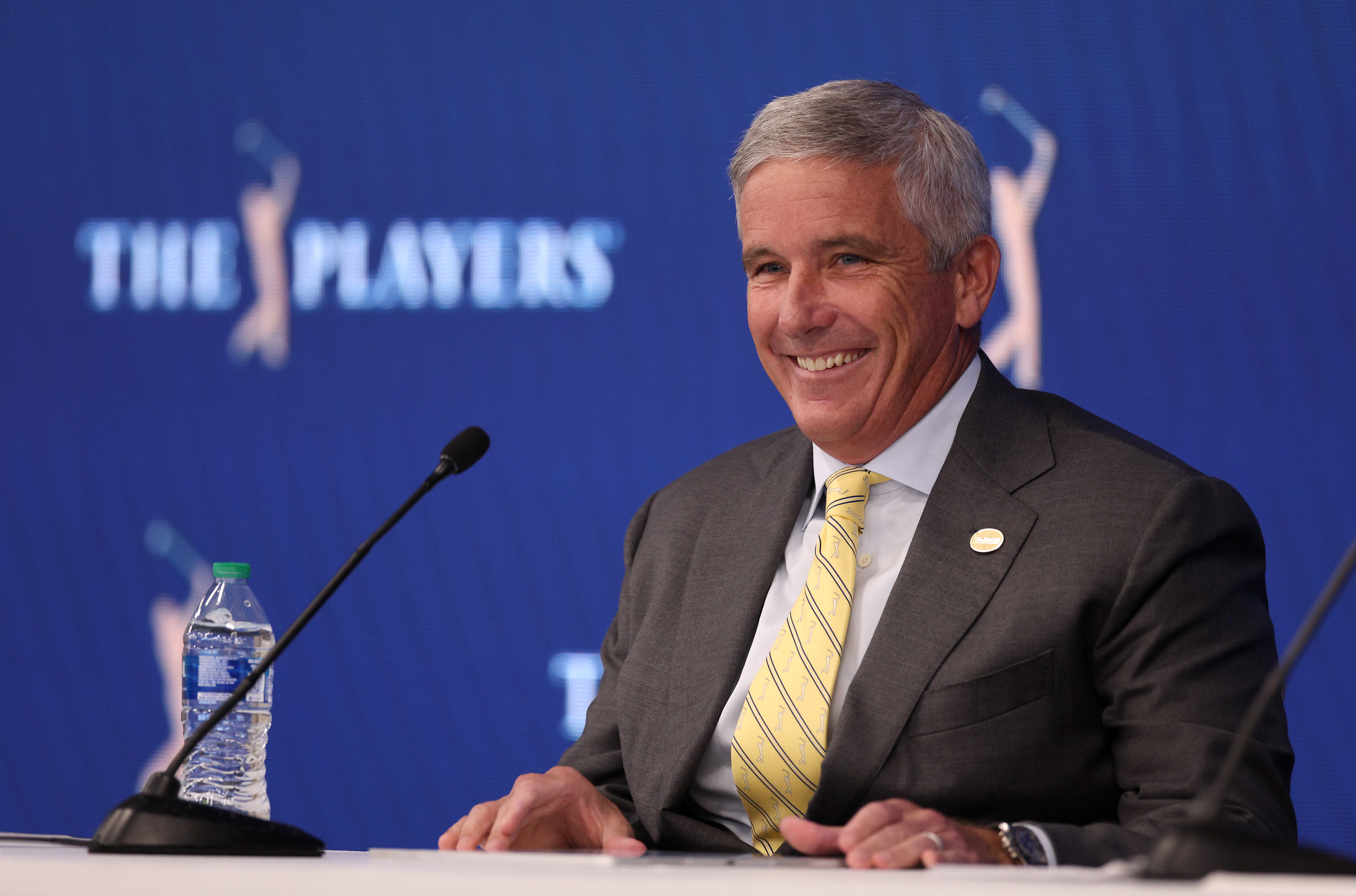PONTE VEDRA BEACH, Fla. — PGA Tour Commissioner Jay Monahan said his mantra is to evolve and adapt. On Tuesday, during his State of the Tour press conference ahead of the Players Championship, Monahan elaborated on the changes coming to the Tour next season.
“We’ve looked at all possible competitive models, and it was evident and perhaps obvious that whatever we do differently, we must showcase our top performers competing against one another more often,” he said.
He framed the 47-event PGA Tour season as a book with many chapters.
“One great chapter does not make a great book,” he said.” A few great chapters cannot stand alone. It is the whole story, the ebbs and the flows, the transitions, the connectivity between each. That’s what makes a book great, and that’s what you need to do to deliver a bestseller.
“That’s what we’re attempting to do with our new competitive model.”
Monahan confirmed that the 2024 Tour schedule “will look significantly different, with a consistent cadence of designate and full-field events,” he said. “Within this framework, those players who qualify for these designated events will be able to better complement their schedules through full-field events, as they return to favorite venues, support their home markets, and solidify positions at the start of the season as well as in advance of the FedExCup Playoffs.”
As previously announced last week, the Tour schedule will feature eight designated events with no cuts and reduced fields. Add in the Players, the three FedEx Cup playoff events and the four majors and that’s 16 events that the best players likely will play.
“This is what fans want and this is what fans have been asking for,” Monahan said. “Here’s a data point: Consider the last five years on the PGA Tour. What percentage of the top 10, top 20, top 30 players in the world compete on average against one another at a major championship? The answer: More than 95 percent. What about those same top players competing together at the remaining PGA Tour events? Answer: Less than 40 percent. Let me repeat that. Less than 40 percent.”
Monahan also defended the addition of no-cut events.
“The PGA Tour has always had limited-field, no-cut 72-hole stroke-play events. In fact, Jack Nicklaus won 17 times in that format. Arnold Palmer won 23. Tiger Woods won 26. To me, those wins, those, the format did not diminish those accomplishments as we sit here today,” he said and also noted that he considers qualifying for those events to be a cut of sorts. “Listen, 75 percent of our events don’t have cuts. I would say to our fans that this is just a different form or flavor of a cut. Because as I was alluding to earlier, if you’re coming into the Wyndham Championship and trying to get into the top 70 in the FedExCup, you are putting yourself in a position to get to BMW, and once we finish in Memphis, 20 of those players are going home and are not eligible for these designated events. To me that’s a cut.”
Monahan contends that the Tour will remain a meritocracy with players promoted and relegated at similar levels.
“The model right now would suggest that roughly a little north of 60 percent of the players in the top 50 will retain their position. So more than a third will not. That was an important element to the changes that we’re making,” Monahan said. “All of our modeling suggests that. Candidly, we have seen some challenges with player fields early in the season. We’ve had a 20 percent decline in exempt members that are participating in some events. That’s something that we recognized was going to happen as we came in this year when we made the changes last summer.”
Monahan pointed out that there are multiple opportunities for players to secure their place in the designated events, which will have huge purses, reduced fields and a guaranteed payday.
“Every single member aspiring to qualify for the designated events has the opportunity to do so throughout the season,” he said. “Will this model be perfect right out of the gate? Perhaps not. But as we’ve done throughout our history and using the FedExCup as a prime example, we will listen, we will learn and we will adapt each year with the changing needs of our players, partners and fans.”

